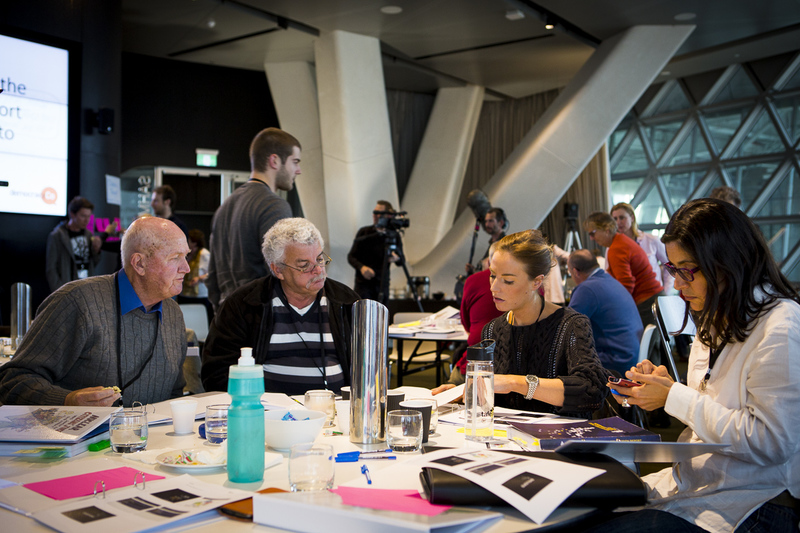The Citizens’ Convention on UK Democracy
The CCUKDemocracy is about improving democratic practice and process to regain falling public trust in our politics and democracy by re-engaging our citizens. To do this we work to place democratic deliberation and citizens’ assemblies at the heart of our democratic culture, making it as regular, commonplace and indispensable feature of our democracy as integral to it as voting.
We also demonstrate a fully worked up example of a Citizens’ Assembly in our Proposal to the Prime Minister for a Citizens’ Convention on UK Democracy. It’s basic concepts of independence, impartiality, inclusiveness, and deliberation can be adapted and reworked to tackle many of today’s “intractable” challenges from Climate Change to Social Care.
We also propose at the international level the essential global architecture which is needed if democracy is to overcome autocracy, that includes a global Citizens’ Assembly, a worldwide What Works organisation for deliberative democracy and a new Marshall Plan to spread deliberative democracy in support of our new democracies.
Finally, we are clear that if Citizens’ Assemblies are to be successful in helping to evolve our democracy they must operate in partnership with Government and our elected representatives, not least to ultimately produce practical legislative outcomes.
All the main UK parties represented in Parliament committed in their respective election manifestos (2019) to some sort of review of our democracy. The Citizens’ Convention on UK Democracy’s (CCUKDemocracy) intention, building on the work we have laid down since 2015, is to give life to that commitment by engaging citizens in this process.
Not least because of the pandemic, a great deal of the citizen engagement will take place online rather than face-to-face, but it will still consist of thorough and inclusive deliberation.
The Citizens’ Convention is made up of three elements: the Thematic Assemblies, a UK-wide National Conversation and a UK Citizens’ Summit. The Citizens’ Convention would take the form of an ambitious and inclusive deliberation on democratic reform in the United Kingdom, forging a new partnership between citizen, elected representatives and Government - all of whom will be engaged from the outset.
See a suggested and amended timetable for this work here.
The Assemblies and the Summit would involve randomly-selected citizens, convened to be demographically representative of the UK population. They will come together to learn, deliberate and make decisions on how democracy can be deepened and improved.
A Citizens’ Convention would spark and interact with a serious and inclusive national dialogue about our democracy: about who makes decisions, who holds power and how we relate to our democratic institutions.
The UK Citizens’ Summit would pull everything together, then the Citizens’ Convention itself would present its recommendations for reform to Parliament and the Government as agreed at the outset.
A unique element of this project is that it is supported not only by the independent Board members but also by party leaders and senior Parliamentarians from the 4 UK-wide parties.
What’s the process?
The Citizens’ Convention working with Government will agree to make a start on a broad agenda. However, it is impartial and focused on process, not on campaigning for or against one single issue. It will involve citizens being the drivers of reform, redesigning their democracy to make it more open, responsive, accountable, participatory and transparent.
This process also has a specific political end game. After consideration by citizens, recommendations will go to Government and Parliament who will have the final say on what to legislate upon.
This presents an opportunity for the reform of UK politics and is also in itself a demonstration of how deliberative democracy engaging citizens can deliver results in practice and change our culture of doing politics.
Past democratic campaigns have always focussed on what reforms are needed. We believe it is equally important to be clear and coherent on how we do it, for that is the core of our democratic demand. The process has to be as democratic as the outcome if democratic change is to be understood, legitimate and sustainable.
Citizens unite
The wave of deliberative democracy is sweeping the world: from Iceland to Ireland, from Texas to Mongolia. Citizens’ deliberations often consider the most pressing and complex questions of the day, where citizen buy-in and input is crucial or where existing party structures may be too rigid to develop ways forward.
“It is democracy at its best and we need nothing less.”
Why do it?
A Convention would take democratic reform beyond Government and Parliament, involving a random selection of citizens in renewal.
Our well-designed process will demonstrate how our democracy can adapt to 21st Century culture and demands, clarifying both the role of representatives and the need for deliberative practices
The Convention shows (rather than tells) a new way of making decisions - deliberative, informed, thoughtful, inclusive, transparent
Citizens have good ideas about how we can improve our political system. Through a deliberative process, we can hear that wisdom and citizens gain confidence in one another’s beliefs, good will and capacities.
There is a harmony of process and outcome: it should deliver important changes to our democratic system and it demonstrates a more democratic way of thinking and deciding
Contents
Preparing for 2024. 2024 is the year in which the UK must began to renew its democratic infrastructure to win back people’s trust and engagement in our politics. Understanding and using citizens assemblies and deliberative democracy in the UK is key to this.
Just as we did before the previous general election in 2019, we are working with stakeholders including Government Ministers, Shadow Ministers, all political parties, colleagues in the field, parliament, civil servants and many others.
Our scene setting CCUKD event in autumn 2023 agreed and began a broad process of engagement with key institutions that will continue to the Manifesto writing, the general election and beyond.
A Proposal to the Prime Minister for a Citizens’ Convention on UK Democracy. Written in 2020 this Proposal demonstrates a fully worked up example of how a Citizens’ Assembly would work to hear peoples recommendations to Government on sensible, thoughtful ways forward to evolve our UK Democracy.
It can be redesigned by an incoming Government and adapted for many of the other challenges we face today. While the basic principles of impartiality and deliberation remain the same, the success of more than 600 Citizens’ Assemblies globally mean that there are many tried and tested designs which are suitable for other policy topics. Citizens’ Assemblies currently in process include those on Drugs policy, Assisted dying, Climate Change and Housing issues. The section includes our oral evidence to the Commons PACAC Select Committee and the submission of evidence to the Lords Constitution Committee on the Constitution. Both demonstrate a highly practical way to use a Citizens’ Convention to help diminish the popular mistrust in politics by giving citizens a say in creating consensual policy .
A global strategy for democracy. Working with the Global Summit for Democracy we co-created their Citizens’ Assembly and Deliberative Democracy Cohort. The Cohort has designed with global experts the essential global architecture which is needed if democracy is to overcome autocracy.This starts with three principal measures, a global Citizens’ Assembly reporting to the Summit, a What Works organisation free & accessible to all, and a new Marshall Plan to spread deliberative democracy in support of our new democracies starting in Central and Eastern Europe.
We have produced a series of articles and letters which may be helpful as background information and demonstrate the relevance and flexibility of our core proposal for a Citizens’ Assemblies.
A series of Frequently Asked Questions are included.
The members of our independent Board are listed.
Finally, our contact details can be found at the end.
Read more about deliberative democracy
If you’re interested in learning more about deliberative democracy, these books, recommended by CCUKDemocracy Advisory Board members, are a great place to start.
James Fishkin, Democracy When the People are Thinking (2018)
David Van Reybrouck, Against Elections: The Case for Democracy (2013)
Daniel Ziblatt & Steven Levitsky, How Democracies Die (2018)
David Farrell & Jane Suiter, Reimagining Democracy: Lessons from Ireland (2019)
NEW: OECD, Catching the Deliberative Wave (June 2020)
““I always say to MPs: give us your hardest problem””







